-
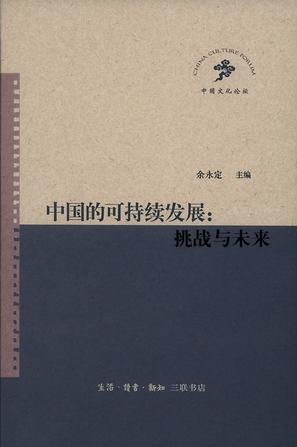
中国的可持续发展
《中国的可持续发展:挑战与未来》内容简介:在过去三十年,中国经济持续高速增长,中国目前的人均收入已达到3600美元,进入中等收入国家的行列。但是历史经验证明,一个国家在达到中等收入水平之后,进一步的增长就可能会遇到难以逾越的障碍。中国的旧增长模式所带来的一系列问题使中国国民生活福利水平越来越难以实现本来应有的更大提高.并给中国的未来发展留下严重隐患。为了实现经济的持续增长、实现从中等收入国家向高收入国家的飞跃,中国面临着哪些严重障碍、如何克服这些障碍,这是中国知识界必须认真研究并予以回答的问题。 -
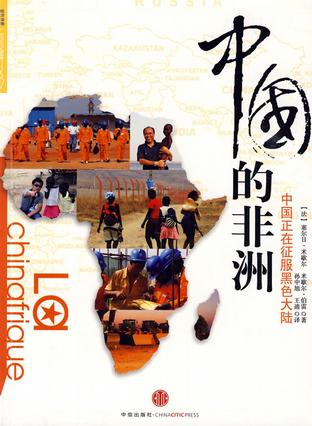
中国的非洲
《中国的非洲》:从一个侧面反映改革开放30年的巨大成就 讲述投资建设非洲的种种故事和遭遇 描绘中非经济政治合作的新图景 由于中国在非洲的投资和建设,这块黑色大陆不再是一个被边缘化的大陆,它正在经历前所未有的高速经济增长,开始重新被世界所重视。 刚果建设、城市规划、住房和土地改革部部长克洛德·阿方斯·恩西卢说:“中国人真是太了不起了!他们给我们建了马桑巴体育馆、外交部大楼和电视台。现在正在建设英布鲁水电站和布拉柴维尔的市政供水系统。他们给我们建机场,铺设黑角一布拉柴维尔的高速公路。他们还给我们建住房,在河边给我们建休闲公园。在奥约、(总统的故乡),他们还建了一所综合性医院,还修了公路,建了住房。这些都是已经决定的事,协议都签了。这一切对我们来说是双赢!” -
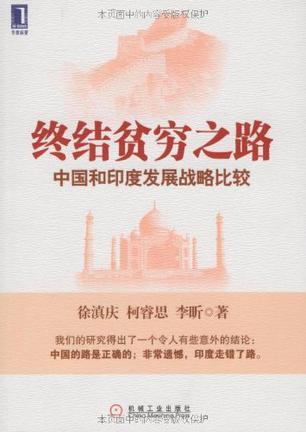
终结贫穷之路中国和印度发展战略比较
《终结贫穷之路中国和印度发展战略比较》从经济发展的各个角度,如资源禀赋、外部援助、经济结构、人力资本、经济政策等详细分析了中国和印度各自选择的不同的发展道路,以及所取得的经济成就。通过分析中印两国不同的经济发展模式,对我国继续深化经济改革进行有益的探讨,乃至为世界范围内的脱贫提供有益的洞见。当今世界,富国越来越富,穷国越来越穷,贫富差距越来越大。各路经济学家纷纷为发展中国家出谋划策,众说纷纭,但有不少落人了“因为穷,所以穷”的怪圈。 -
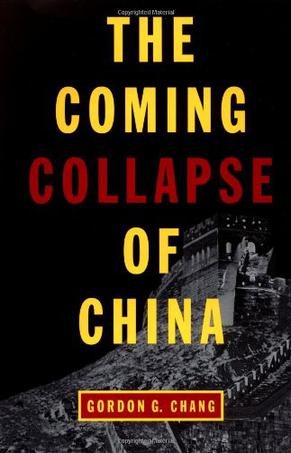
The Coming Collapse of China
-
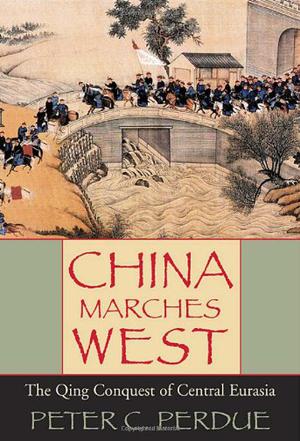
China Marches West
From about 1600 to 1800, the Qing empire of China expanded to unprecedented size. Through astute diplomacy, economic investment, and a series of ambitious military campaigns into the heart of Central Eurasia, the Manchu rulers defeated the Zunghar Mongols, and brought all of modern Xinjiang and Mongolia under their control, while gaining dominant influence in Tibet. The China we know is a product of these vast conquests. Peter C. Perdue chronicles this little-known story of China’s expansion into the northwestern frontier. Unlike previous Chinese dynasties, the Qing achieved lasting domination over the eastern half of the Eurasian continent. Rulers used forcible repression when faced with resistance, but also aimed to win over subject peoples by peaceful means. They invested heavily in the economic and administrative development of the frontier, promoted trade networks, and adapted ceremonies to the distinct regional cultures. Perdue thus illuminates how China came to rule Central Eurasia and how it justifies that control, what holds the Chinese nation together, and how its relations with the Islamic world and Mongolia developed. He offers valuable comparisons to other colonial empires and discusses the legacy left by China’s frontier expansion. The Beijing government today faces unrest on its frontiers from peoples who reject its autocratic rule. At the same time, China has launched an ambitious development program in its interior that in many ways echoes the old Qing policies. China Marches West is a tour de force that will fundamentally alter the way we understand Central Eurasia. -
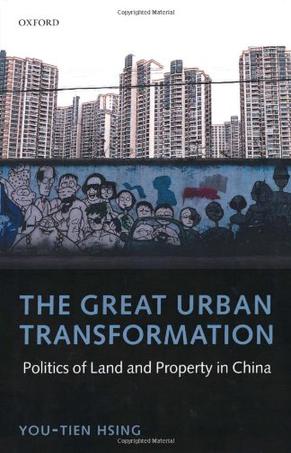
The Great Urban Transformation
Product Description As China is transformed, relations between society, the state, and the city have become central. The Great Urban Transformation investigates what is happening in cities, the urban edges, and the rural fringe in order to explain these relations. In the inner city of major metropolitan centers, municipal governments battle high-ranking state agencies to secure land rents from redevelopment projects, while residents mobilize to assert property and residential rights. At the urban edge, as metropolitan governments seek to extend control over their rural hinterland through massive-scale development projects, villagers strategize to profit from the encroaching property market. At the rural fringe, township leaders become brokers of power and property between the state bureaucracy and villages, while large numbers of peasants are dispossessed, dispersed, and deterritorialized, and their mobilizational capacity is consequently undermined. The Great Urban Transformation explores these issues, and provides an integrated analysis of the city and the countryside, elite politics and grassroots activism, legal-economic and socio-political issues of property rights, and the role of the state and the market in the property market. About the Author You-tien Hsing is Associate Professor of Geography at University of California at Berkeley. She is the author of Making Capitalism in China: The Taiwan Connection (1998, Oxford University Press) and co-editor (with Ching Kwan Lee) of Reclaiming Chinese Society: Politics of Redistribution, Recognition, and Representation (Forthcoming, Routledge).